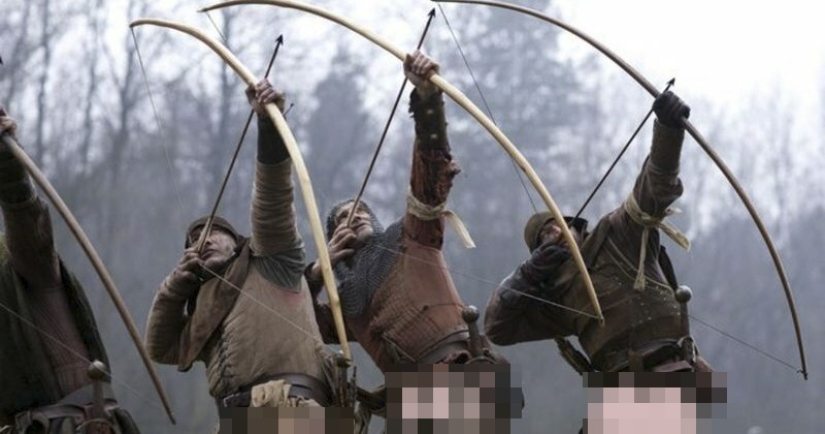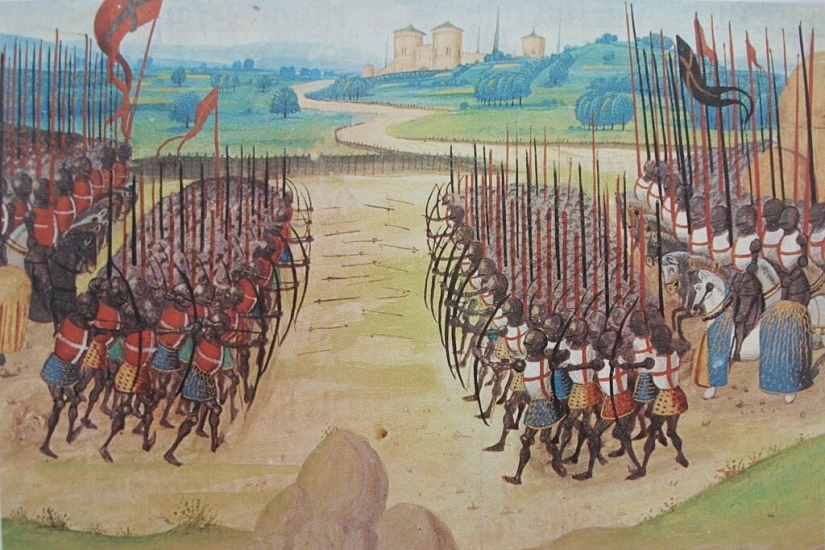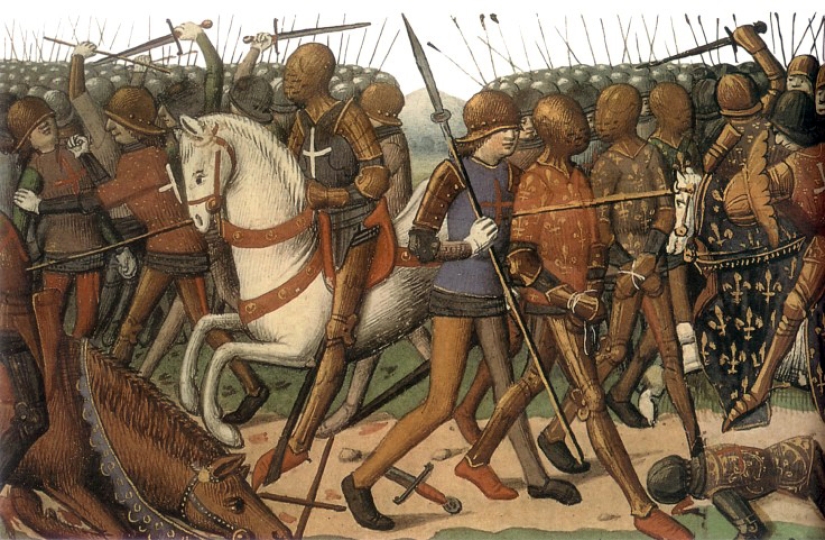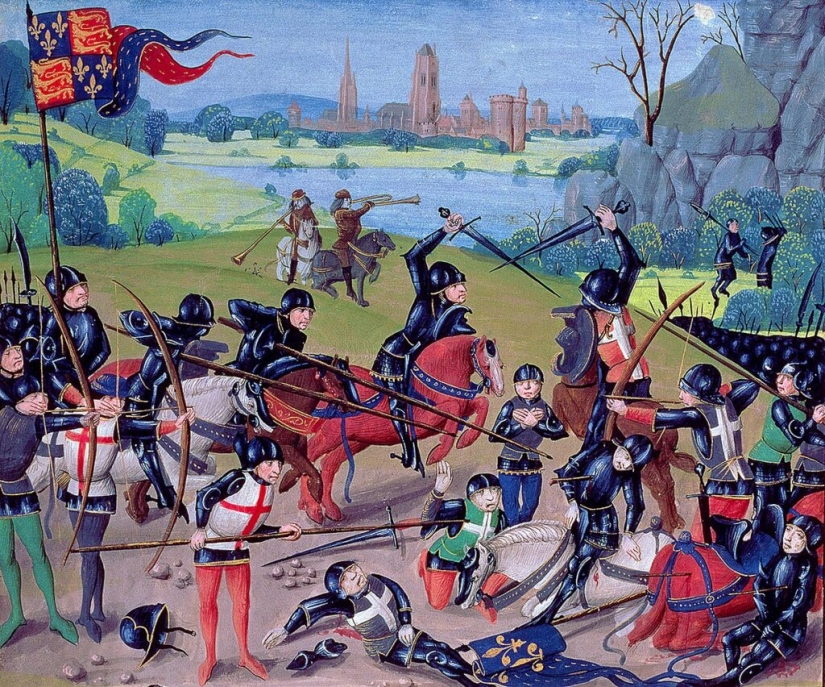Why did English archers fight without trousers at the Battle of Agincourt
Categories: History
By Pictolic https://pictolic.com/article/why-did-english-archers-fight-without-trousers-at-the-battle-of-agincourt.htmlThe victory of the British over the French at Agincourt in 1415 was one of the most important events of the Hundred Years' War. The French were five times more numerous, but this did not prevent them from losing. And this despite the fact that most of the British went into battle not only without armor, but also without pants. This historical fact is surprising, but it was so. At the same time, the soldiers were undressed for a very unusual reason.

In the autumn of 1415, the English King Henry V led his troops along the banks of the Seine deep into France. The enemy retreated, but did not hurry to surrender. The French used scorched earth tactics, destroying villages behind them, burning crops and poisoning wells. The British had to advance in extreme conditions and dysentery broke out in their ranks.

A vile infectious disease, which at that time could not be treated, mowed down the army. Even the bishop who accompanied Henry V's army died. The once brave Englishmen were a pitiful sight. They were desperate people - hungry, tired, dirty, constantly looking for bushes.
Half of the army could not stand the hardships and left their king. But 5 thousand fighters, among whom archers predominated, remained with him. Most of them remained faithful not because of beliefs or love for the monarch. Henry V promised to brutally torture and execute anyone who showed cowardice.
As luck would have it, the autumn rains charged and the roads became muddy. Having lost their baggage trains in the mud, the British slowly moved forward without having the most necessary things. Most of the king's soldiers had nothing to change into and could not wash their clothes. Therefore, the pants stained with dirt and feces were simply thrown away.

At the end of the heavy march, a "bonus" was prepared for the bare-assed warriors. The French army, refreshed and replenished its ranks, was waiting for them. 25 thousand well-fed, rested and well-equipped fighters met the British near the small village of Agincourt.
There was nowhere to retreat and the British went into battle. They had an important advantage — large English bows, as tall as a man, hit much further and faster than French crossbows. The rare ranks of soldiers going on the attack without trousers tried to sweep away with heavy cavalry, but the ground, muddy from the rains, quickly deprived the riders of all advantages.

When the French infantry, under a hail of arrows, approached the enemy for hand-to-hand combat, it turned out that the lack of clothing was not a minus, but rather a plus. It was much easier to fight in the mud in the pouring rain naked. The battle with varying success lasted the whole day. Because of this, even the British who kept their trousers decided to part with their clothes.
Dysentery was ignored and painful urges attacked the archers right during the fight. There was no time to fuss with ties and buttons, so the lower part of the wardrobe went into the mud. Surprisingly, desperation worked a miracle — the British won. The French at Agincourt lost 8-10 thousand soldiers and shamefully fled. The losses of the British were about 1.5 thousand people.

The result of this strange battle was that the French signed an agreement and recognized Henry V as the heir to their throne. The English king even married the daughter of the mad French monarch Charles VI Catherine of Valois. However, the winner could not enjoy the triumph — he died a few years later at a fairly young age, ironically from dysentery.
Recent articles

It's high time to admit that this whole hipster idea has gone too far. The concept has become so popular that even restaurants have ...

There is a perception that people only use 10% of their brain potential. But the heroes of our review, apparently, found a way to ...

New Year's is a time to surprise and delight loved ones not only with gifts but also with a unique presentation of the holiday ...